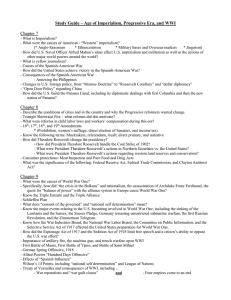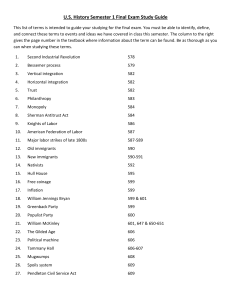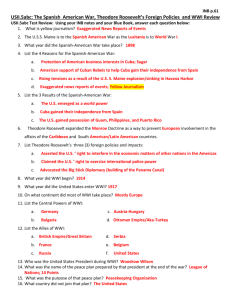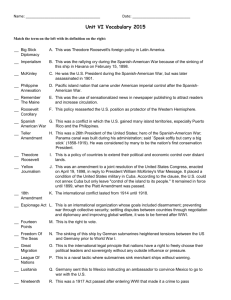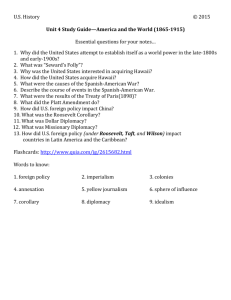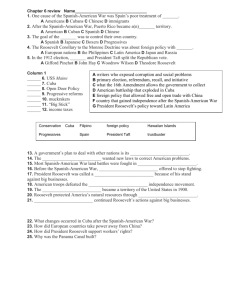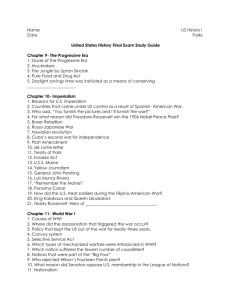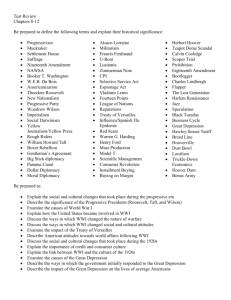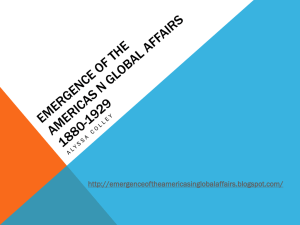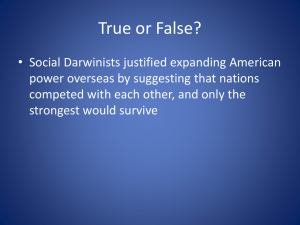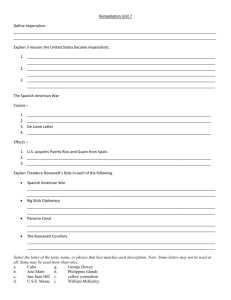Unit 4: Rise to World Power Test Review
advertisement
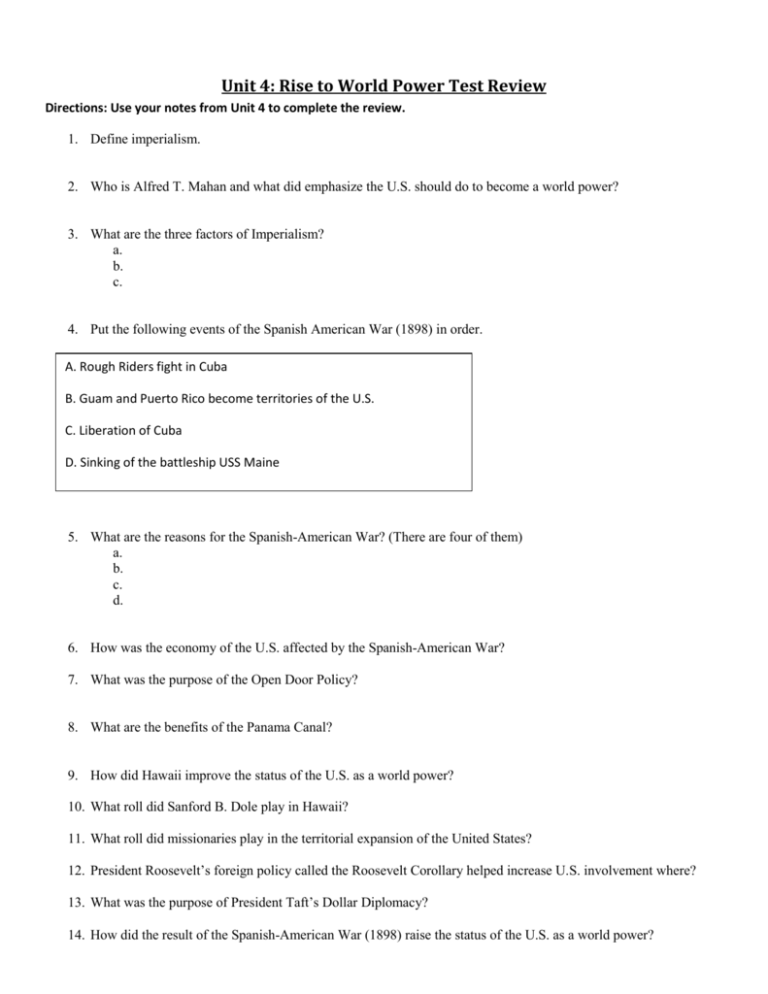
Unit 4: Rise to World Power Test Review Directions: Use your notes from Unit 4 to complete the review. 1. Define imperialism. 2. Who is Alfred T. Mahan and what did emphasize the U.S. should do to become a world power? 3. What are the three factors of Imperialism? a. b. c. 4. Put the following events of the Spanish American War (1898) in order. A. Rough Riders fight in Cuba B. Guam and Puerto Rico become territories of the U.S. C. Liberation of Cuba D. Sinking of the battleship USS Maine 5. What are the reasons for the Spanish-American War? (There are four of them) a. b. c. d. 6. How was the economy of the U.S. affected by the Spanish-American War? 7. What was the purpose of the Open Door Policy? 8. What are the benefits of the Panama Canal? 9. How did Hawaii improve the status of the U.S. as a world power? 10. What roll did Sanford B. Dole play in Hawaii? 11. What roll did missionaries play in the territorial expansion of the United States? 12. President Roosevelt’s foreign policy called the Roosevelt Corollary helped increase U.S. involvement where? 13. What was the purpose of President Taft’s Dollar Diplomacy? 14. How did the result of the Spanish-American War (1898) raise the status of the U.S. as a world power? 15. What three countries did the United States gain control of after the Spanish-American War? 16. Match the quote by Theodore Roosevelt to the war he supported. “I would give anything if President McKinley would order the fleet to Havana tomorrow.” -Theodore Roosevelt , 1898 “If I must choose between righteousness and peace, I choose righteousness.” -Theodore Roosevelt, 1915 17. What years was World War I? 18. What years were the U.S. involved in World War I? 19. What was the Sussex Pledge? Did Germany uphold their pledge? 20. The combination of the Zimmerman Telegram and what else contributed to the U.S. getting involved in WWI? 21. Who is General John (Blackjack) J. Pershing and what is he known for? 22. Who is Alvin York and what is he known for? 23. How did machine guns affect the way WWI was fought? 24. Airplanes were used in WWI, how were they used and how did their use during the war change over time? 25. Why is the battle of the Argonne Forrest significant during WWI? 26. Who did the Treaty of Versailles blame for the start and fighting for WWI? 27. Besides having to pay war reparations, what did Germany lose with the signing of the Treaty of Versailles? 28. Describe the propaganda in the U.S. during WWI in regards to Germans. 29. How did the U.S. government react to information or people who were anti-war or were perceived as disloyal? How did they track that information? 30. What did most American politicians fear most if the United States passed the Fourteen Points and joined the League of Nations? 31. What were the pros and cons of the U.S. joining the League of Nations in 1918? Pros Cons
